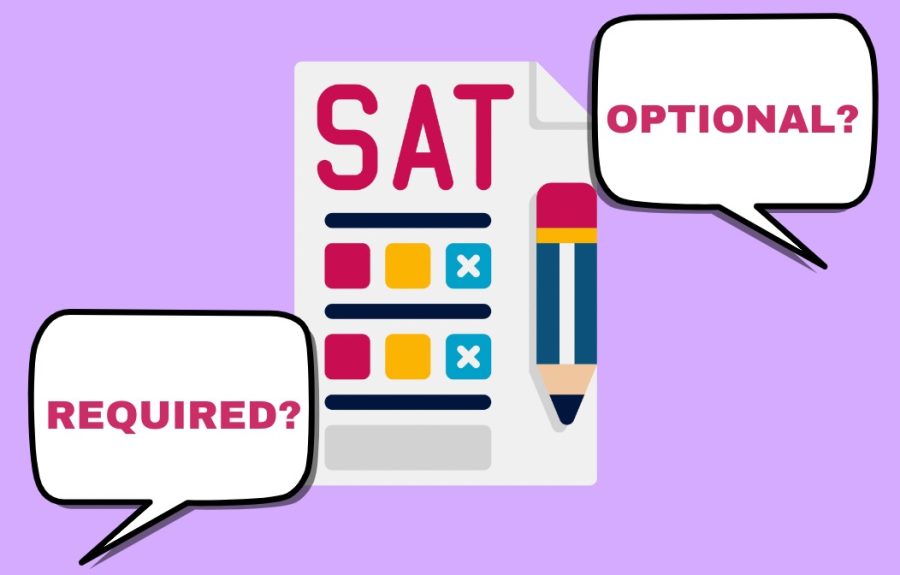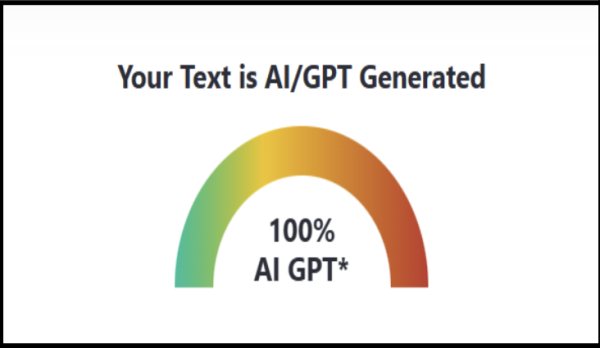Opinion: All colleges should become test-optional
For many years, standardized tests were a staple of the high school experience. Initially intended to increase meritocracy, the purpose of the SAT was to limit college acceptance based on factors such as wealth or a family’s connection to the school. The ACT was then created as a competitor to the SAT. However, because of continued inequity in test preparation and the incomplete picture test scores paint of students, all universities should implement the test-optional policies that have become increasingly common in the recent past.
With the upcoming SAT hosted at CHS, many students are asking themselves whether they should even take the test, considering many colleges have become test-blind or test-optional. Currently, over 1,800 colleges and universities are test-optional, a trend catalyzed by COVID-19.
“I think that there was a trend to at least be optional […] and then because of the pandemic, [universities] had to do it,” said College and Career Counselor Robin Lutsky. “A lot of colleges, they will probably stay test-optional, but prefer the test.”
But the pandemic is not the only reason so many universities have gone test-optional, nor is it the main reason more colleges should stop requiring test scores. In an attempt to ensure equality in college admissions and protect lower-class applicants’ chances of acceptance, multiple lawsuits have called into question the equity of standardized tests.
“There were lawsuits going on about equity in California because there was such a range of incomes,” said Lutsky. “And clearly higher income schools can afford the test prep and everything. That was when, in 2020-2021, the Cal States and the UCs, which just happened to be with the pandemic, had already made the decision to go test blind.”
While many schools have become test-blind or optional, some still require a test score as a standardized measure by which to compare applicants, regardless of the high school they attend. This is intended to ensure equity in applications, but due to unavoidable inequalities in test preparation, that is not necessarily the case.
“[Universities are] constantly trying to standardize and even the playing field,” said College and Career Counselor Nancy Yumkas. “But the problem is that the playing field isn’t even. People at a higher income have the means to get tutors and help and test prep.”
Due to the variety of financial backgrounds of students taking exams, there is no way to make an application requiring a standardized test score truly equal for all applicants. Only a test-optional policy would ensure that students can demonstrate academic talent if they so choose while preventing any disadvantage to less affluent students.
“Possibly, the equity conversation will become louder across the United States,” said Lutsky. “The data will be too obvious that a more affluent neighborhood has a direct correlation, or those studies will be made so available that the U.S. Department of Education will have to make a stand on it. But right now, that isn’t really the case.”
Currently, individual colleges get to decide whether they will be test-blind, test-optional or will require a standardized test score for their applications. However, a national policy requiring all universities and colleges to truly be test-optional is needed. To truly be test-optional, colleges need to treat applications with a standardized test score as having an extra benefit, not that one lacking a score is a lesser application.
Regardless of what schools or students decide, standardized tests are changing. The SAT and ACT are both set to go digital in the 2023-2024 school year and will be adaptive, meaning they will change according to student performance. However, even if the format of the SAT and ACT change with the times, the tests are still not necessarily representative of each student’s abilities, due not only to equity issues but to the fact that a standardized test is, in its essence, only a single test.
“I think everybody is realizing that [a standardized test] is just a snapshot – it’s just a day in time,” said Yumkas. “It’s not necessarily indicative of everything. I think it’s really helpful on the positive side and doesn’t hurt you […] if you don’t use it.”
Since the SAT and ACT are not necessarily indicative of student capabilities, whether that is due to the affluence of their school or their condition on test day, to truly give all students an equal chance, all colleges should become test-optional. Universities should not prefer applications with test scores but rather treat scores as an extra benefit to the applicant, giving students the chance to best represent themselves and have more control over their own education. Unless standardized test prep is equally offered to all students, an incredibly unrealistic prospect, it is not fair for colleges to require a standardized test score. Regardless, due to the flawed concept of a mandatory SAT or ACT, all universities should become test-optional.
Your donation will support the student journalists of Calabasas High School. Your contribution will allow us to purchase equipment and cover our annual website hosting costs.

Hi! My name is Caitlin Brockenbrow, and I'm on staff. I was head editor of my middle school's newspaper and magazine for two years and I am excited to...

Hi! My name is Sedona Kaye, and I’m the Perspectives Editor this year. I learned so much as a staff writer last year and can’t wait to learn more....











